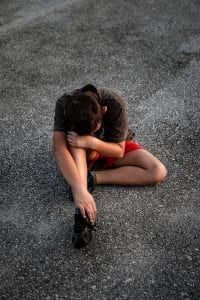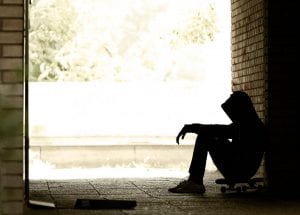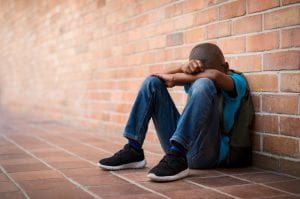![]() The measles is back. This viral illness – one of the most contagious known – can cause serious complications and death among young children. Although eradicated in the U.S. in the year 2000, it has been staging a steady comeback. [Read more…]
The measles is back. This viral illness – one of the most contagious known – can cause serious complications and death among young children. Although eradicated in the U.S. in the year 2000, it has been staging a steady comeback. [Read more…]
What We Know About The Measles Comback
How Racism Affects Youth Health and Well-being
We’ve written previously about how racism affects the health and well-being of millions of Americans. The evidence demonstrates that people who experience racial discrimination are more likely to have a range of health problems, including poorer mental health and a lower quality of life.
What to Do If a Loved One Self-Injures
Research shows that approximately 17 percent of youth intentionally injure themselves at some point – not in an effort to take their own lives, but as a cry for help or an emotional release. Self-injury is most common among teenagers, and more common among sexual minorities and youth with mental health disorders. [Read more…]
Sex Education and Parenting: What We Know
 When you think of sex education, the first thing that comes to mind may be a classroom full of giggling and blushing middle school students. But there is clear evidence that the foundations for sex education – and much of what determines adolescents’ knowledge, attitudes and behavior – comes from parents and guardians at home. [Read more…]
When you think of sex education, the first thing that comes to mind may be a classroom full of giggling and blushing middle school students. But there is clear evidence that the foundations for sex education – and much of what determines adolescents’ knowledge, attitudes and behavior – comes from parents and guardians at home. [Read more…]
Parenting Classes: Helpful at Any Age
 The early bird gets the worm.”
The early bird gets the worm.”
“Begin as you mean to go on.”
“The earlier, the better.” [Read more…]
How to More Effectively Prevent Child Sexual Abuse
Every day, children in the United States experience sexual abuse. It’s difficult to determine how widespread this problem is because child sexual abuse is not uniformly defined and most certainly under-reported. The best data available tells us that more than 25 percent of girls and 5 percent of boys experience sexual abuse at some point during their formative years. [Read more…]
The Evidence on Kids, Sleep, and School Start Times
It’s nearly time for kids across the country to head back to school and that means—for most kids—waking up bright and early. While early mornings are not often problematic for younger kids, tweens and teens often struggle to get up in the morning. [Read more…]
How To Treat the Growing Problem of Childhood Anxiety
 Whether it’s feeling nervous to attend a new school, afraid of a scary looking bug, or scared of the dark, most children experience some form of anxiety. But up to one in three children experience more severe anxiety that affects their ability to learn and socialize. [Read more…]
Whether it’s feeling nervous to attend a new school, afraid of a scary looking bug, or scared of the dark, most children experience some form of anxiety. But up to one in three children experience more severe anxiety that affects their ability to learn and socialize. [Read more…]
What Happens When We Separate Families
 Over the past several months, Immigration and Customs Enforcement (ICE) – a branch of the U.S. Department of Homeland Security – has been separating parents and their children seeking asylum at the U.S. border. In the vast majority of cases, these children have been taken to care institutions while their parents are detained in jail. [Read more…]
Over the past several months, Immigration and Customs Enforcement (ICE) – a branch of the U.S. Department of Homeland Security – has been separating parents and their children seeking asylum at the U.S. border. In the vast majority of cases, these children have been taken to care institutions while their parents are detained in jail. [Read more…]
Why Do Youth Self-Injure?
 Self-injury is defined as harming oneself on purpose, but without the intention of committing suicide. Research finds that about 17 percent of adolescents harm themselves intentionally. Girls are more likely to begin injuring themselves at a younger age, and use more serious forms of self-injury. Boys are more likely to injure themselves when they are high or drunk, or when they are in a social setting. [Read more…]
Self-injury is defined as harming oneself on purpose, but without the intention of committing suicide. Research finds that about 17 percent of adolescents harm themselves intentionally. Girls are more likely to begin injuring themselves at a younger age, and use more serious forms of self-injury. Boys are more likely to injure themselves when they are high or drunk, or when they are in a social setting. [Read more…]








